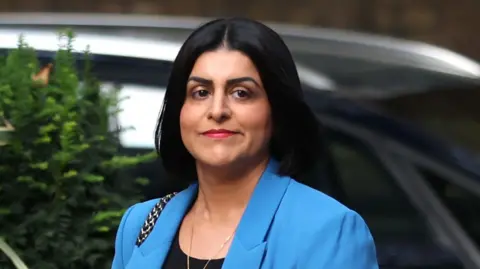Urgent review ordered into asylum seeker taxi costs
49 minutes agoSue Mitchell andRachel Muller-Heyndyk

 Getty
GettyThe home secretary has ordered an urgent review into the use and cost of taxis to transfer asylum seekers from their hotels to appointments.
The move by Shabana Mahmood follows a BBC investigation that found some migrants having to travel long distances on journeys costing hundreds of pounds.
One asylum seeker told the BBC he had taken a 250-mile journey to visit a GP, with the driver telling him the cost to the Home Office was £600.
Asylum seekers are issued with a bus pass for one return journey per week, but for any other necessary travel, such as a doctors’ appointment, taxis are called.
The BBC asked the government how much it spends on taxi travel for asylum seekers via a Freedom of Information Act request, but the Home Office said it does not keep these figures.
The File on Four investigation reported that asylum seekers must show proof of an upcoming appointment at the reception desk of their hotel, where a taxi is booked on an automated system. Public transport or walking is not presented as an option.
This can result in some unusually long journeys and others that are unusually short.
For instance, when migrants move between hotels, they sometimes keep the same NHS doctors – especially for GP referrals.
Work and Pensions Secretary Pat McFadden told BBC Radio 4’s Today programme he agreed that there should be an investigation into how the system works.
“I’m not surprised that this was a feature that caught people’s eye”, he said.
On Tuesday, housing minister Matthew Pennycook told the Today programme it was “questionable” that asylum seekers needed to take such long taxi journeys and said the government would “look into those cases”.
He added that asylum seekers were not “ordinary citizens just jumping on a bus”.
The BBC went into four hotels housing asylum seekers, as part of its investigation, uncovering cramped living conditions, illegal working, and fire alarms covered with plastic bags, as residents had to cook meals over electric hobs in bathrooms.